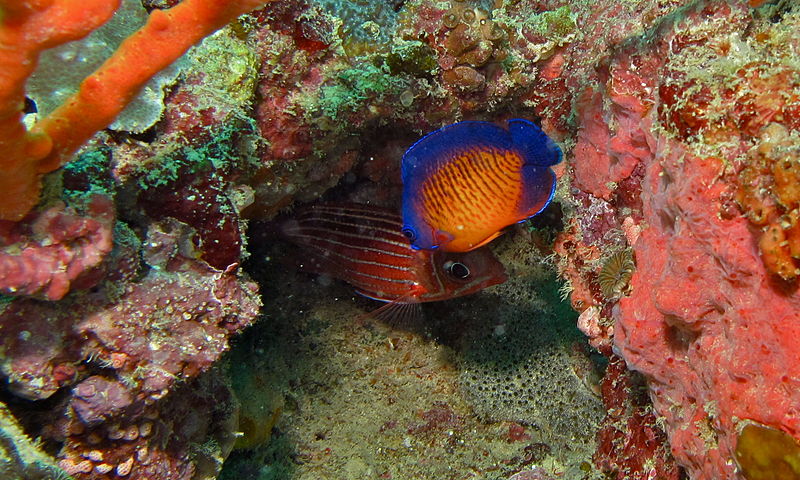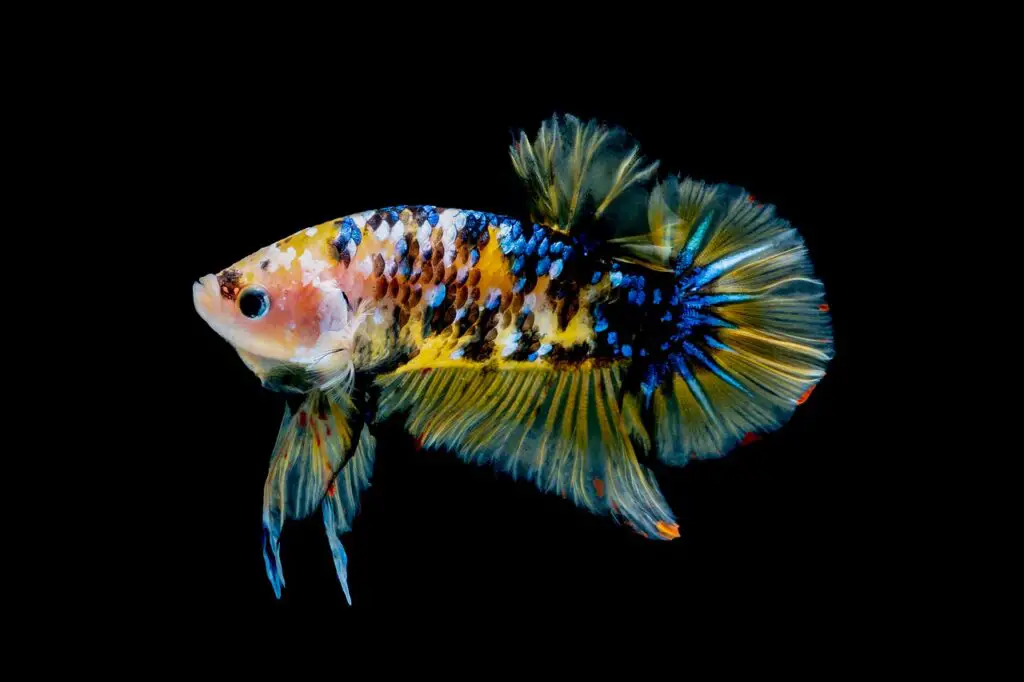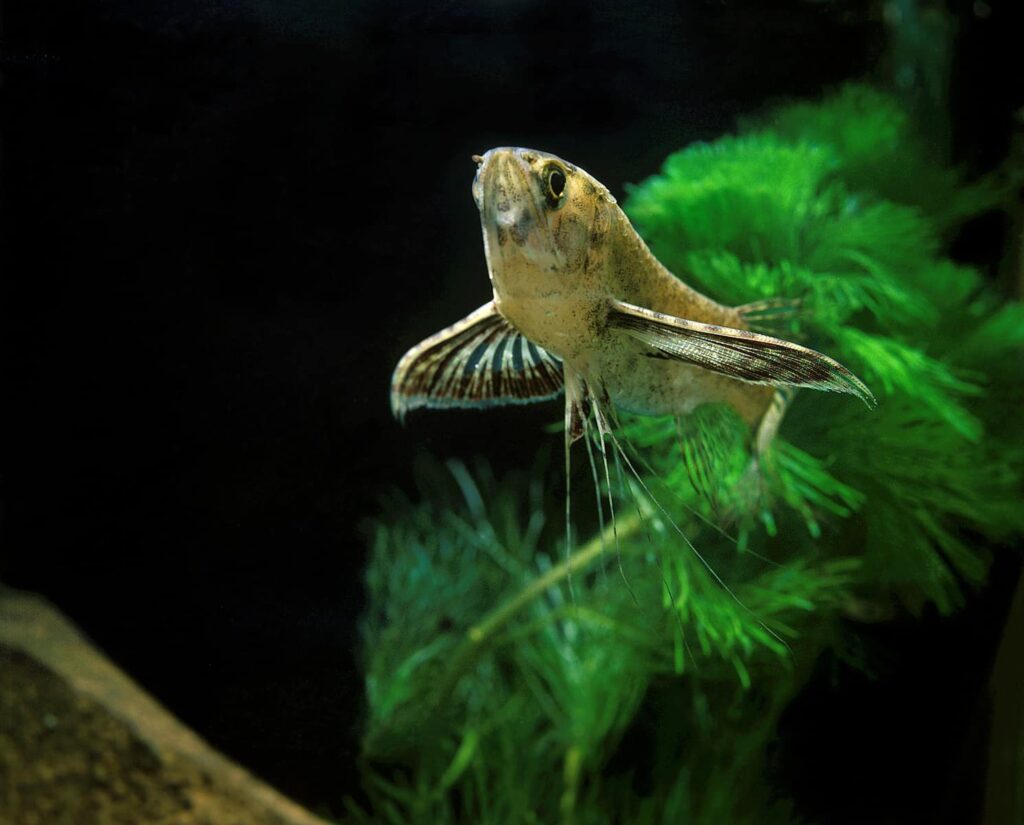As the name suggests, the coral beauty is an absolutely gorgeous fish that loves the reefs – making it an ideal choice for any reef safe saltwater tank. These critters can be rarer than some of the swimmers you’ll spot in many home tanks, meaning they might just be the best choice for your aquarium!

Let’s take a look at everything you need to know about looking after your own coral beauties.
- Fish Lifespan: Up to 15 Years
- Tank Size: Minimum of 30 Gallons
- Water Temperature: Between 72F and 80F
- pH: Between 8.1 and 8.4
- Hardness: Between 8 and 12 dKH
- Compatibility: Compatible with Damselfish, Clownfish and Reef Safe Wrasses
- Fish Size: Up to 4 Inches
How do you take care of coral beauties?
Coral beauties tend to be great first saltwater tank adoptees! While they can have specific diet needs, their tank requirements are not particularly stringent. Therefore, you’re not likely to be tangling with a particularly picky fish! These are angelfish, which means that they can have a little bit of a reputation for being slightly aggressive, though nowhere near the scale of damsels!
Coral beauties are bright and wonderful, and like many tropical fish, enjoy ducking in and out of little nooks and crannies. Therefore, they are well worth setting up with different live rocks and caverns in the tank itself. Generally, a 30 gallon tank is going to be a good size to house a small clutch of coral beauties, providing you stick to the general 1 inch of fish per 2 gallons of water rule.
As with many saltwater fish that can be territorial, it pays to set up a tank that’s as large as you can handle. Coral beauties love to have plenty of room to swim about in, which means that while 30 gallons is going to be a good starting point, if you do want to extend the community even further, you should probably look at 40 to 50 gallons as a decent jumping-off point.
Coral beauties will eat pretty much everything, so it’s a good idea to set them up with a mix of meat and herbivore treats, as well as fish flakes recommended by your local aquarium or your vet. They can, however, prey on and bully smaller fish, so make sure you line up other critters in the tank that are of a similar size and temperament. Generally, damselfish might actually be the best route to take!
These fish can live for years and years, with some passing well beyond the 15 year marker. Therefore, providing you set them up with the best tank balance and feed them on the right nutrition, you shouldn’t ever have that much to worry about.
Is a coral beauty reef safe?
Coral beauties love the reefs in general as that’s where they come from – however, caution is advised. Some beauties may choose to nibble on coral polyps, meaning that they are not always going to be the best fit.
However, on the whole, the coral beauty is well known for being very reef friendly, and what’s even better is the fact that they will even help to keep some of the nuisance algae in your tank at bay. That’s always a plus.

Coral beauties will also do well with most other reef safe fish, even though they can be bullies to smaller critters if you give them half the chance. Generally, if the tank is big enough for their needs and they have plenty of room to go and hide if they want to, you likely won’t see much of a problem from them.
What do coral beauties eat?
Coral beauties are omnivores, which means they will eat just about anything. They can prey on smaller fish and tank creatures, and what’s more, they will also take kindly to fish flakes and even the algae in your tank!
The coral beauty’s algae munching prowess is a really good thing to have on one side, as it means that you can keep potentially harmful levels of the green gunk as low as possible without having to resort to anything unnatural.
These angelfish will do well on balanced diets. This means that you should be looking into giving them a good mix of herbivore food, meat, and flakes. The golden rule of fish like these is to also ensure you are not mixing them with smaller fish in the same tank – if you can help it. Coral beauties will grow to be 5 inches long, max, so that does cut down your options a little bit.
However, it needn’t be that much of an issue. Simply make sure these angelfish have tank mates of a similar size or larger so that they are unlikely to go bullying anyone they shouldn’t. Simple!
How long can a coral beauty live?
Coral beauties can live for 15 years or more, making them some of the longest-runners in any saltwater and reef tank community.
However, there’s nothing to say that a coral beauty won’t live for longer, or that it may not live as long as this benchmark. The longevity of a coral beauty really does depend on the quality of their diet and the standard of their tank, as well as the other fish they mix with.
That’s why it is so important to make sure that you are giving your beauties the best possible conditions for their specific needs. When treated properly, these fish can persist for years on end, making them some of the best picks for long-term aquarium use.
Your coral beauty is going to live for years and years providing you give it the best possible start. It’s going to be a relatively hardy beast, which means it’s unlikely to fall prey to anything nasty, but vigilance is always going to be important.
Can you have a flame angel and coral beauty together?
It’s entirely possible to put a flame angel and a coral beauty in the same tank. Angelfish can live together peacefully. However, there are some cases where they may get territorial.
It isn’t unheard of for these fish to fight or bully each other occasionally. Therefore, you need to be especially careful with the tank conditions. This means you should focus on setting up a large tank with plenty of hiding places, and you should make sure that the fish you introduce are of similar sizes and temperaments.
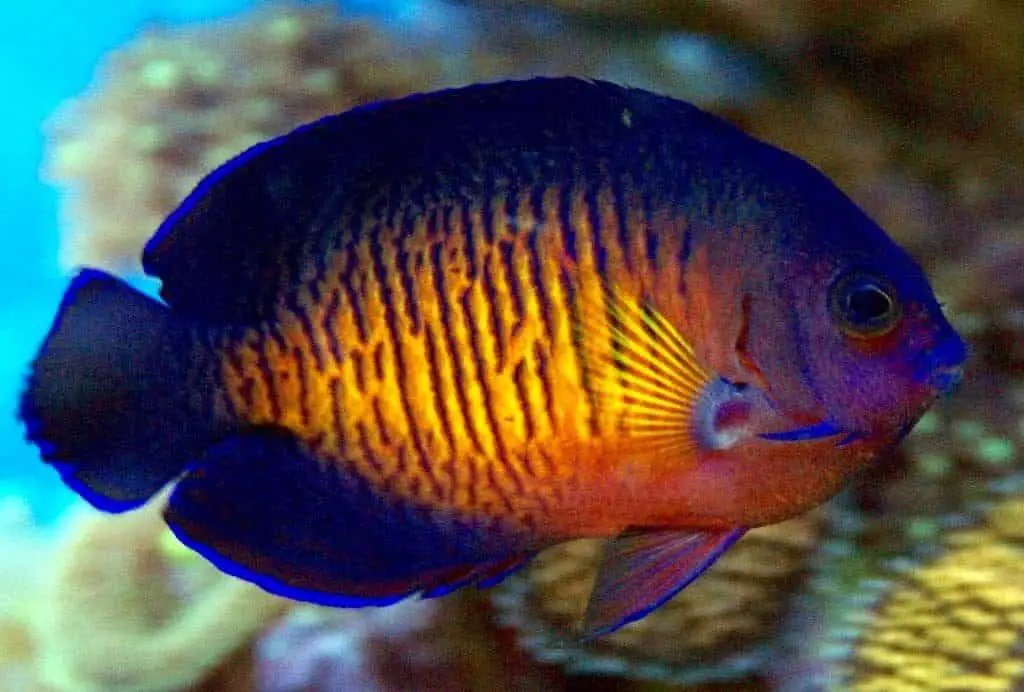
Otherwise, you are going to end up with smaller fish feeling bullied by the mid to larger critters in the tank. This is a no-no, whether or not it is angelfish that you choose to mix.
Therefore, yes – it’s fine to mix flame angels and coral beauties, but at the same time, you must keep a close eye on those tank conditions, and how they work together. If they are showing any signs of stress or distress, it might be time to separate them.
If you are just starting with a saltwater tank, it’s a good idea to try and stick to one type of fish to begin with, as mixing the community can take a lot more work.
Is Coral Beauty Hardy?
Yes. Coral beauties are famously hardy, which means they are unlikely to come to harm providing you give them the best tank conditions possible.
Keeping your coral beauty topped up on a nutritious diet is always key. This way, you can ensure that they have the healthy start they need to fight back against anything noxious that might set them off kilter.
As always, keep an eye on your fish. The coral beauty may be a very hardy fish that’s easy to leave to their own devices, however, that doesn’t necessarily mean you can take your eyes off them full stop.
Always make sure that you offer them a balanced diet, a large tank, and the water conditions they desire. Otherwise, you may find that you end up cutting their lives relatively short. As mentioned above, coral beauties can live for very long periods – meaning you’re really going to want to give them the lives they deserve.
Do queen angelfish eat coral?
Queen angelfish can and do eat coral, and the same applies to coral beauties. These fish are often considered reef safe, but there’s nothing to say they won’t take a nibble every now and again.
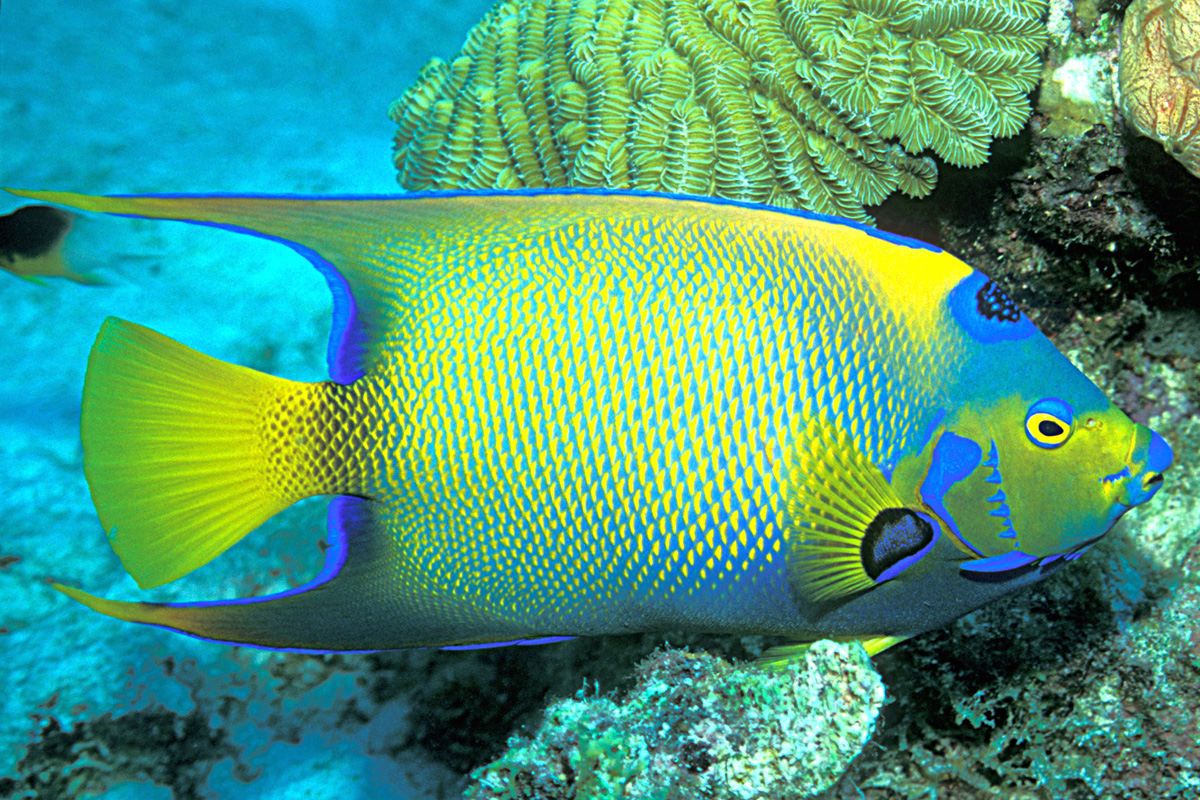
Coral beauties particularly enjoy taking a nibble on the odd coral polyp, which means you should keep a close eye on their activities if you depend on the reef.
Angelfish tend to enjoy munching on reef and coral in general, which perhaps makes them tricky customers to balance when your tank is so dependent on the plant life you have in place.
As always, take close care of your fish. Coral beauties are very easy to look after providing you are careful with their food, and providing you give them a big enough tank with high quality water at the temperature and pH they demand. You could have fish that live for more than a decade!

